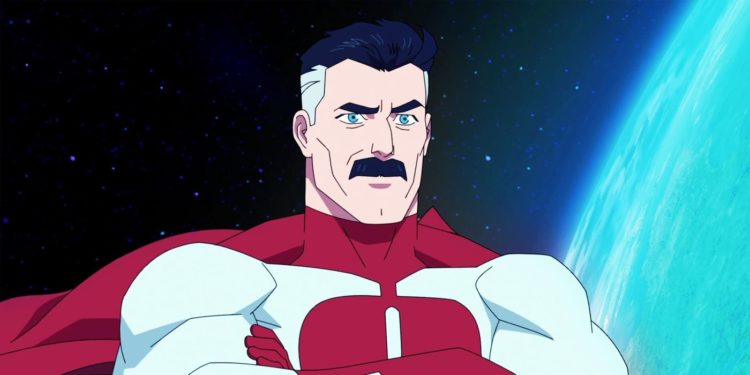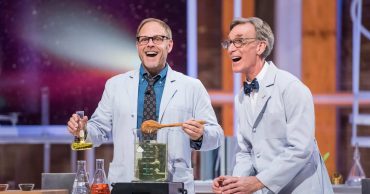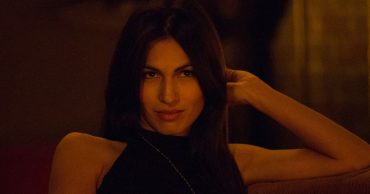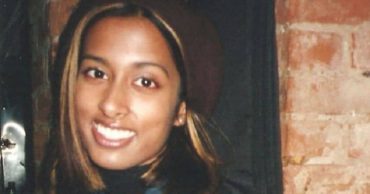
As a recent convert to the church of Alan Moore, I love the newly-popular Watchmen subgenre of this generation’s brand of popcorn entertainment. We’ve already seen Marvel tackle the complications of being a superhero, but they never show what happens when the heroes are actually the villains. As debates rage on about the Marvel monoculture, others tackle the subject of heroism more complexly. Its success led to several adaptations based on similar conceits as Watchmen and put through a more modern, 21st-century lens.
Watchmen isn’t technically about superheroes. A DC property, most of the heroes are more Bruce Wayne than Clark Kent. Yes, Doctor Manhattan has a similar origin story to several heroes and villains after a nuclear reactor goes awry with him in it. Still, the rest, while strong, drugged up, and trained to be elite fighters, are mostly human. As such, their brains, brawn, penchant for manipulation, and ability to weave their public personas make them more significant threats than any of their most deranged action.
SPOILERS FOR ‘THE BOYS’ AND ‘INVINCIBLE’ AHEAD
It’s a clear-cut allegory about American society’s lionization of fictional heroes that play off of the public’s love affairs John Wayne, Robert Redford, and everyone in between. After all, just because someone purports to be a hero and/or plays one on television, it doesn’t mean they tell the whole story. Readers are in on the secret from the get-go. Alan Moore, a seldomly off-brand curmudgeon who infamously hates to see his work adapted in any way. Collider notes how Zack Snyder’s infamous attempt to do so failed to make a mark. However, HBO’s recent sequel series helped bridge the gap between the Reagan-era allegories of the source material and helped expand them to the modern world. Watchmen deservingly became synonymous with anti-superhero, but it doesn’t mean it needs to be alone. Amazon Prime offers fans of the genre two series with similar conceits on a scale more in tune with the MCU.
Based on the popular Dynamite series, The Boys asks what happens when society sees a group of superheroes not just as protectors, but celebrities, politicians, religious figures, and aspirational patriots. However, unlike the masked vigilantes of Moore’s work, these heroes have real powers. The series’ take on Justice League is called The Seven. Operating like Disney by way of Blackwater, the gang is constantly micromanaged by its corporate overlords as they take on baddies on reality television shows and star in propaganda films about themselves on big-screen. Homelander, their face and unofficial leader is an Aryan, All-American alpha male with Captain America’s sentiments to go with Superman’s powers. When we see his acts of heroism without propaganda attached, we learn that he is not a hero but one of the greatest villains in entertainment history.
Played by Anthony Starr, who gives his best Zack Morris by way of Dean Cain’s Superman, Homelander publicly claims to stand for law and order. However, what he really wants is a world built in his vision where the law and order he strives for is whatever he sees fit at the time. Far from the only villain in the crew, Homelander is the most flagrantly sociopathic. Save for him, and Nazi war criminal turned social media girl boss Stormfront has some humanity under their darkest whims. Homelander, on the other hand, is willing to tear the world apart, let men, women, and children die, and sacrifice the world’s well-being for his Fascistic worldview. The series twist and turns complicate nearly every hero, but Homelander is always left on top while his misery and childish mindset get the best of him.
On Invincible, based on the Image Comics series, a teenage superhero-in-training named Mark Grayson (voiced marvelously by Minari’s Stephen Yeun) learns about the hypocrisy of being a hero. With animation harkening back to the days of GI Joe, Invincible may appear to be the wackier superhero farce, but anyone who watches knows that this is not the case. Invincible has comedic moments and a roster of preposterous heroes and villains, but the true villain hides in plain sight as one of the planet’s most heroic. For much of the series’ early run, Oscar-winner J.K. Simmons Omni-Man is the All-American hero that The Boys’ society sees Homelander as. According to Omni-Man, he came from another planet to help keep humanity in check under the guise of saving them. After landing on the planet in the eighties, Omni-Man embraced humanity, fell in love with Sandra Oh’s Debbie, and had a son named Mark, the titular hero of the series.
Despite fooling the world into thinking he was on their side, Omni-Man is an intergalactic double agent. Hiding in plain sight by day as a travel writer named Nolan Grayson, his family may know his true identity, but they do not know his actual motives. There, we learn that he was responsible for the catastrophic accident that reportedly killed his version of The Seven out. As Mark develops powers, he learns about his father’s sins, and the battle suddenly becomes more personal to both.
Like Homelander, Omni-Man lives a double life where he’s proto-Superman by day and proto-Lex Luthor by night. Society might see him fighting monsters by himself and saving humanity from imminent disaster. Still, it’s less about protecting them and more about keeping them in line until the time comes for his own planet to take over control. Omni-Man may operate with some disgusting values, but he’s no better than Homelander when his lies are put on full display in front of humanity’s eyes. The heartbreaking finale features the age-old duel between father and son. There, Omni-Man justifies his actions by stating that he cannot care about a race that’s so much weaker than he is. This leads to one of the most beautiful moments in recent television memory.
Despite the differences in motivation, Omni-Man is, in many ways, a different painting of the concept behind Homelander. While Homelander is a loose cannon who is hellbent on upholding norms that never actually happened, Omni-Man is helping his home planet. While both are evil, Omni-Man’s version runs on a set of values that, while immoral, explain where he is coming from. Homelander, on the other hand, is vicious, conniving, soulless, joyless, and far too narcissistic to operate in similar regards. He’s allowed plane crashes to cover up mistakes, murdered politicians and their kids, and viciously murdered the woman he loves in front of Karl Urban’s Billy Butcher.
On the other hand, Omni-Man plays nice with nearly everyone on earth and only shows his evil side when it is helping uphold his plan of domination. Both are horrific portraits of the dangers of the Great American Hero, but they go about it differently. Omni-Man represents the man who thinks he’s doing well to uphold his land of origin. At the same time, Homelander shows a man who perpetuates the very ideals he purportedly fights without an ounce of self-awareness. As such, they are both a more ‘realistic’ portrayal of all the ways a perceived hero can be more criminal. In return, the audience must ask what a Superman is like from the point of view of the unsuspecting public he hurts most.
 Follow Us
Follow Us





